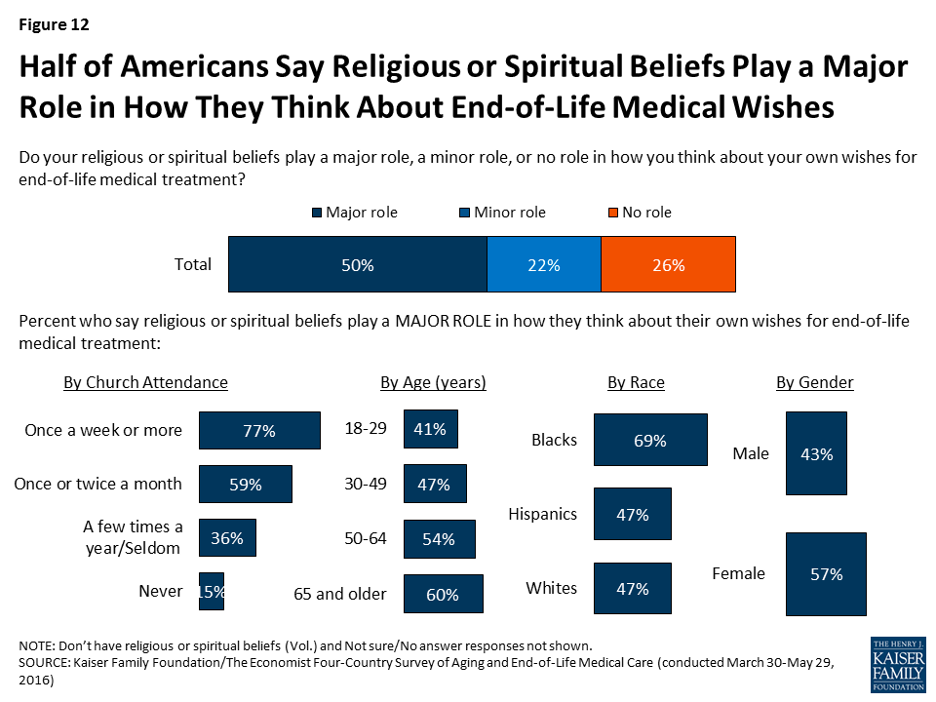Understanding and Navigating End-of-Life Journeys



February 05, 2024
Facing Life's Final Chapter
End-of-life care and discussions are crucial yet complex aspects of our existence. With over 61 million deaths globally in 2023, and over 1.5 million Americans receiving hospice care annually, these figures underscore the vastness of this profound journey, touching countless individuals and families.
Reflecting on this, Cicely Saunders, a pioneer in palliative care, once said, "You matter because you are you, and you matter to the end of your life." This sentiment captures the essence of end-of-life care – a journey of dignity, respect, and compassion.
As we explore the various facets of end-of-life experiences, this blog post will unpack key insights in the following areas:
- Understanding Emotional Responses: How we process complex emotions like grief, fear, and acceptance during the end-of-life journey.
- The Importance of Connections: The vital role of personal relationships and support networks in providing comfort and strength.
- Navigating Care and Practical Advice: Guidance on the practical aspects of end-of-life care, from healthcare decisions to legal preparations.
- Planning for End-of-Life: Strategies for thoughtful and informed planning, ensuring wishes and needs are respected and met.
Riding the Emotional Waves
In life's final chapter, emotions can feel like waves – unpredictable and powerful. It's when you might navigate a sea of feelings, from deep grief to moments of unexpected calm.
Grief is a unique and personal journey. Everyone's grief is different. It's not just about feeling sad; it's a complex mix of emotions that can change daily, even moment by moment.
Further, fear is also a natural part of the end-of-life process. It could be fear of the unknown, leaving loved ones, or the process of dying. The key is to acknowledge these fears. Sometimes, talking about them makes them feel less overwhelming.
Here are some tips for emotional well-being:
- Mindfulness: Simple practices like breathing exercises can help center your emotions.
- Journaling: Writing down your thoughts can provide a release and a way to reflect.
- Art Therapy: Engaging in creative activities can be a soothing way to express feelings.
- Talking: Whether with friends, family, or a professional, sharing your emotions can be incredibly therapeutic.
Talking about your emotions with others can make a world of difference. A study from the American Psychological Association showed that social support can help manage grief more effectively.
The Importance of Connection
Maintaining and turning toward connections when facing the end of life is not just comforting; it's essential. Research in palliative care consistently shows that solid social support positively impacts the psychological well-being and overall quality of life of those nearing the end of their journey.
Family, friends, and caregivers play a crucial role in this. They provide not just practical support but also emotional sustenance. The presence of loved ones can help alleviate feelings of isolation and despair, offering a sense of normalcy and continuity in life's final stages.
Moreover, for caregivers, this time is not only often challenging, but it can also be rewarding. According to the National Alliance for Caregiving, caregivers often experience a deep sense of satisfaction in providing care despite the emotional and physical demands.
Navigating the Final Details
Navigating the practicalities of end-of-life care can be overwhelming, yet it's crucial to ensuring dignity and respect in the final stages of life. Planning and making informed decisions can significantly ease the emotional burden on the individual and their loved ones.
Key aspects of end-of-life care include understanding various care options, making legal preparations, and ensuring that the individual's wishes are clearly communicated and respected. Advance care planning is a critical component of this process. It involves discussing and preparing for future decisions about your medical care if you become seriously ill or unable to communicate your wishes.
The National Institute on Aging stresses the critical role of legal tools like living wills and health care proxies in guaranteeing that an individual’s treatment preferences are known and respected. This foresight is vital in practice, as it guides healthcare providers in making decisions that align with the patient's wishes, avoiding the potential for medical interventions that may go against their values or desires. In the absence of such clear directives, individuals may receive treatments that are not in line with their personal beliefs, leading to ethical dilemmas and added stress for both the patient and their loved ones.
Additionally, navigating healthcare options, like hospice and palliative care, requires understanding their differences and choosing what aligns best with the individual's needs and wishes. It's not just about medical care; it's about comfort, quality of life, and respecting the person's end-of-life wishes.
Finding Peace
Finding inner peace in life's final chapter is a journey that involves more than just acceptance of the end. It's about discovering a sense of fulfillment and tranquility within oneself, often facilitated through spirituality, self-reflection, and acceptance.

Spirituality, which can take many forms, from organized religion to personal meditation, often plays a vital role in end-of-life care. Many individuals find comfort in spiritual practices, which can provide a sense of connection, meaning, and hope.
Self-reflection also plays a key role. Reflecting on one's life, the joys and sorrows, achievements and setbacks, can bring a sense of closure and completeness. It's a process that allows for reconciliation with oneself and others, offering peace.
Lastly, accepting the impermanence of our human lives can be helpful in processing death. This doesn't necessarily mean giving up hope but instead coming to terms with the reality of the situation. It's about embracing each day, finding joy in small moments, and being at peace with the journey ahead.
Embracing the Voyage: Reflections on Life's Final Journey
Navigating the end-of-life journey is indeed deeply personal and unique. It's a path that intertwines challenges with profound opportunities for growth, love, and reflection. While often difficult, this journey can also be a time of extraordinary meaning and profound introspection.
Remember, you are not alone. Each step, each challenge, and each moment is part of a shared human experience. As you navigate this path, may you find strength in the support around you, wisdom in your reflections, and, above all, a deep sense of love and memories you cherish.
How the End-of-Life Experience Can Transform Your Life
At Reimagine, we view the end-of-life journey not just as a farewell, but as a profound opportunity for transformation. Confronting the reality of our impermanence can be a powerful catalyst for seeing life through a new lens. It invites us to make decisions and take actions that are rooted in love and compassion. While it’s undeniably a path marked by pain and reflection, it also opens the door to remarkable growth and healing.
As we navigate this journey, two key beliefs guide us:
- Community Support as a Cornerstone: We understand that safe, accessible, and engaging community support is crucial. It's why we create gateway events – spaces where you can share, learn, and find solace among others who understand. This sense of belonging and shared experience is vital in processing the complex emotions and realities of end-of-life.
- A Platform for Healing and Growth: We're not just navigating end-of-life; we're actively building a platform where this journey is embraced as one of healing and growth. It's a place to explore the depths of our experiences, to find meaning in them, and to emerge with a renewed sense of purpose and connection.
Embracing these beliefs allows us to see the end-of-life experience in a new light. It becomes a journey not just of challenge, but of profound potential – to reshape how we live, love, and connect with the world and each other.

